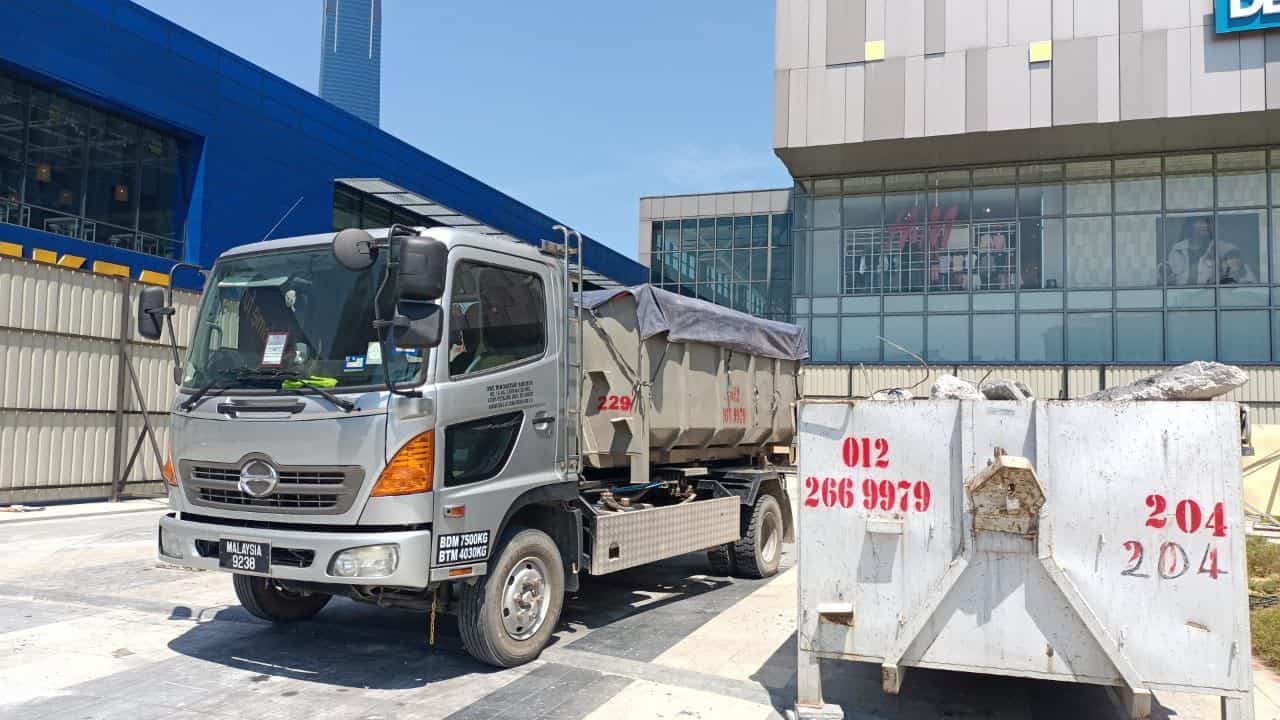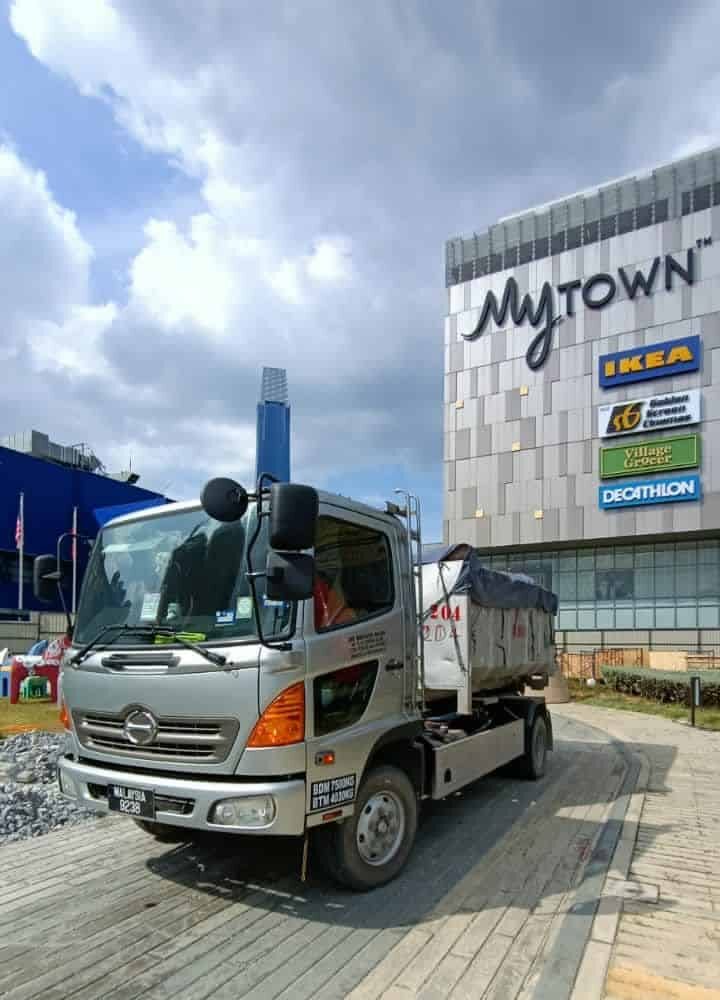RORO BIN RENTAL
Find The Right Size For Your Project

Small Roro Bin
Dimensions: 12′ (L) X 6′ (W) X 2.5′ (H)
Best Use: Heavy construction and demolition waste like concrete and soil.

Large Roro Bin
Dimensions: 12′ (L) X 6′ (W) X 4′ (H)
Best Use: Light-weight construction, industrial, commercial waste, furniture, household bulky waste, trees and etc.

Domestic Roro Bin
Dimensions: 12′ (L) X 6′ (W) X 4′ (H) with roof
Best Use: Domestic food waste (Organic waste).

Extra Giant Roro Bin
Dimensions: 16′ (L) X 8′ (W) X 6′ (H)
Best Use: Light-weight construction, industrial, commercial waste, furniture, household bulky waste, trees and etc.

Giant Roro Bin
Dimensions: 14′ (L) X 7′ (W) X 5.5′ (H)
Best Use: Light-weight construction, industrial, commercial waste, furniture, household bulky waste, trees and etc.
WHAT MAKES US DIFFERENT ?

Value Price

Express Service

Licensed Under Local Authorities

Quick Scheduling
TESTIMONIALS
OUR CLIENTS







PROJECT REFERENCE









Dumpster Bin
What is a Dumpster Bin?
Dumpster bins are large waste containers specifically designed for the convenient, large-scale disposal of trash and debris. These bins are commonly rented for short-term use in residential, commercial, or industrial settings, where they play a crucial role in keeping spaces clean and organized. Dumpster bins offer a practical solution to managing waste in various situations, from home cleanouts to construction sites.
A dumpster bin is essentially a large metal or plastic container used to collect and transport waste materials to a landfill or recycling center. With various sizes available, dumpster bins accommodate different types of projects and waste volumes, making them versatile enough for both small cleanups and massive construction projects.
Different Types of Dumpster Bins
When it comes to choosing a dumpster bin, you’ll find several types catering to specific needs.
Residential Dumpster Bins
These smaller-sized dumpster bins are perfect for home projects like spring cleaning, minor renovations, or moving preparation. They’re compact enough to fit in a driveway but large enough to handle most household waste.
Commercial Dumpster Bins
Commercial bins are typically larger than residential dumpsters and are commonly found behind businesses, restaurants, and retail stores. They’re designed to handle regular waste generated by businesses.
Industrial Dumpster Bins
Industrial dumpster bins are heavy-duty containers used for large construction projects, demolition sites, and other high-waste generating activities. They’re built to handle substantial weight and can hold all kinds of construction debris, including concrete and metal.
Common Uses for Dumpster Bins
Home Renovations and Cleanouts
Home projects often produce unexpected amounts of waste, from old furniture to construction debris. A dumpster bin provides a central place to dispose of all these items easily.
Construction Sites
Construction and demolition projects can create massive piles of debris. Dumpster bins at these sites keep waste manageable and ensure the area stays safe and clean.
Large-Scale Events
Events like festivals, concerts, and fairs generate significant waste. Event organizers use dumpster bins to handle the trash produced and keep the venue clean.
Benefits of Using a Dumpster Bin
Efficient Waste Disposal
One of the biggest benefits of using a dumpster bin is the efficiency it offers in waste disposal. You can dispose of large volumes of trash all at once, saving time and trips to a landfill.
Safety and Cleanliness
Dumpster bins help prevent accidents by containing waste in one area. This is particularly important on construction sites, where loose debris can pose safety hazards.
Eco-Friendly Waste Management
Many dumpster rental services recycle a portion of the collected materials. By using a dumpster bin, you may be contributing to an eco-friendly waste management solution.
How to Choose the Right Dumpster Bin
Assessing Your Needs
Different projects require different dumpster bins. Assess your needs based on the amount of waste, type of materials, and the duration you’ll need the bin.
Understanding the Size of the Dumpster Bin
Dumpster bins come in a range of sizes, typically measured in cubic yards. Selecting the right size ensures that you won’t pay for unnecessary space or risk running out of room.
Considering the Type of Waste
Different materials may have disposal restrictions. Check with your rental provider to ensure your dumpster bin is appropriate for your waste type.
Estimating Rental Duration
If you’re renting a dumpster, estimate how long your project will take to avoid additional fees for extended rental periods.
Dumpster Bin Sizes and Their Uses
Small Dumpster Bins (2-10 Yards)
These are ideal for small-scale projects, such as garage cleanouts or yard work. They’re affordable and easy to fit in limited spaces.
Medium Dumpster Bins (12-20 Yards)
Medium-sized bins are suitable for larger home renovations, such as kitchen remodels, or small construction projects.
Large Dumpster Bins (30+ Yards)
For major construction sites and commercial projects, large dumpster bins provide ample space for all types of debris.
Dumpster Bin Safety Tips
Safe Loading Practices
Avoid overloading your dumpster bin to prevent materials from spilling over. Keep items below the top edge for secure and safe transport.
Materials You Shouldn’t Put in a Dumpster Bin
Certain items, like hazardous waste, electronics, and specific building materials, are prohibited in dumpster bins due to safety and environmental regulations.
Hazardous Waste
Materials like paint, pesticides, and chemicals should never be disposed of in a dumpster bin. These substances require special handling.
Electronics and Batteries
Electronics and batteries contain harmful chemicals and should be recycled through specialized programs.
Environmental Impact of Dumpster Bins
How Dumpster Bins Help with Recycling
Many dumpster companies separate recyclable materials, reducing the amount sent to landfills.
Reducing Landfill Waste
By consolidating waste in a single container, dumpster bins contribute to more organized and efficient disposal methods.
Dumpster Bin Maintenance and Care
Tips for Keeping a Dumpster Bin Clean
If possible, cover your dumpster bin when it’s not in use to prevent odors, pests, and excess moisture.
Common Misconceptions about Dumpster Bins
“Dumpster Bins Are Only for Industrial Use”
Dumpster bins come in various sizes, making them suitable for residential and commercial use as well.
“All Waste Can Be Thrown in a Dumpster Bin”
Some items, like hazardous materials, cannot be placed in a dumpster bin and require specialized disposal.
Dumpster Bins vs. Other Waste Disposal Options
Tips for Saving Money on Dumpster Bin Rentals
Choose the Right Size
Selecting the correct size prevents you from paying for unnecessary space or risking fines for overloading.
Dumpster bins offer a practical, efficient, and eco-friendly way to manage waste for various projects. Whether you’re tackling a home renovation or coordinating waste disposal for a major event, dumpster bins provide a versatile solution that can be tailored to meet specific needs.


